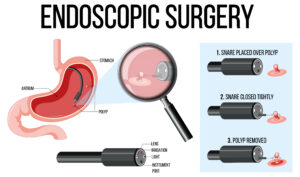
Endoscopy is a common medical procedure that helps doctors take a closer look at your digestive system. If your doctor has recommended it, you may feel nervous or unsure about what to expect. Don’t worry—endoscopy is generally safe, quick, and effective. With the right preparation, the procedure can go smoothly and provide your doctor with valuable insights into your health.
This guide explains what you should do before, during, and after an endoscopy. It also includes dietary tips, preparation checklists, and answers to common questions patients have. If you’re considering expert care, the top 10 gastroenterologist in Surat can ensure you receive accurate diagnosis and safe treatment.
What Is an Endoscopy?
An endoscopy uses a thin, flexible tube with a camera (called an endoscope) to view your digestive tract. It is typically used to diagnose conditions like:
- Acid reflux or GERD
- Stomach ulcers
- Chronic indigestion
- Internal bleeding
- Polyps or growths
- Swallowing difficulties
Sometimes, doctors may also take tissue samples (biopsies) or perform minor treatments during the procedure.
Why Preparation Matters
Proper preparation helps doctors get clear images of your digestive tract and ensures accurate results. It also reduces discomfort during the procedure.
Step 1: Preparation Before the Procedure
Here’s what to do in the days leading up to your endoscopy:
- Fasting: Most patients are advised not to eat or drink anything for 6–8 hours before the procedure. This ensures your stomach is empty.
- Medication Adjustments:
- Blood thinners, aspirin, or certain supplements may need to be stopped temporarily.
- Always inform your doctor about all medicines you take.
- Health Conditions: If you have diabetes, high blood pressure, or heart conditions, your doctor may give special instructions.
- Transportation: Since sedation is used, arrange for a friend or family member to accompany you and drive you home.
- Clothing: Wear loose, comfortable clothes and avoid wearing jewelry or makeup.
Step 2: What Happens During the Endoscopy
- You’ll be asked to lie on your side, usually the left side.
- Sedation (through IV) will be given to keep you relaxed and pain-free.
- The doctor will gently insert the endoscope through your mouth and guide it down your esophagus into the stomach.
- The tiny camera sends real-time images to a monitor, allowing the doctor to examine your digestive system.
- If needed, biopsies (small tissue samples) can be taken without pain.
Duration: The whole process usually takes 15–30 minutes.
Step 3: Recovery After the Endoscopy
- Observation: You’ll rest for about 30–60 minutes while the sedation wears off.
- Mild Symptoms: It’s normal to feel bloated or have a sore throat for a day. These usually go away on their own.
- Eating: Start with light meals or liquids once you feel alert. Avoid spicy, oily, or heavy foods for the first 24 hours.
- Activities: Avoid driving, working, or making big decisions on the same day due to sedation effects.
- Follow-Up: The doctor may share initial results right after, but biopsy reports may take a few days.
Diet Tips Before and After Endoscopy
- Before:
- Eat soft, light foods the day before (like rice, soup, or bananas).
- Avoid spicy, fatty, or fibrous foods.
- After:
- Start with soft foods like khichdi, soups, or porridge.
- Drink plenty of water.
- Avoid alcohol, caffeine, and fried foods for at least 24 hours.
Checklist: Preparing for Your Endoscopy
✔ Stop eating/drinking 6–8 hours before the procedure
✔ Inform your doctor about all medications and supplements
✔ Arrange someone to drive you home
✔ Wear loose, comfortable clothes
✔ Follow the doctor’s instructions carefully
Frequently Asked Questions (FAQ)
- Is endoscopy painful?
No. Most patients are sedated and only feel mild discomfort, like a sore throat afterward. - How long does the procedure take?
Usually 15–30 minutes, plus recovery time. - Can I go back to work the same day?
It’s better to rest for the day. You can resume normal activities the next day. - Are there risks involved?
Endoscopy is generally safe. Rare risks include bleeding or reaction to sedation. - How soon will I get results?
Initial results are often shared the same day. Biopsy results may take 3–7 days.
Final Thoughts
Endoscopy is a safe, reliable, and effective procedure that can provide answers to your digestive health problems. By preparing well, following your doctor’s advice, and taking care after the procedure, you can make the experience smooth and stress-free.
If you’re looking for trusted specialists, consulting the top 10 gastroenterologist in Surat will give you access to expert care, accurate diagnosis, and a personalized treatment plan for your needs.
👉 With the right preparation and guidance, you can take control of your digestive health and live a more comfortable, healthier life.
